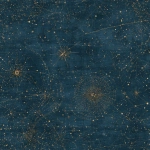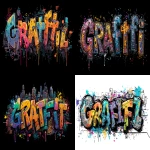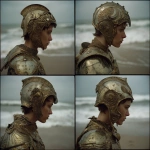Explore the Best AI Image Gallery

Quantum Creativity: Where Technology Meets Artistic Expression
The boundaries between technology and art are blurring at an unprecedented rate. While advancements like artificial intelligence (AI) have already made waves in creative fields, a new paradigm shift is on the horizon: quantum computing. This revolutionary technology, harnessing the principles of quantum mechanics, promises to unlock unimaginable possibilities for artists, designers, musicians, and storytellers.
Imagine generating breathtakingly realistic 3D models with intricate details, composing symphonies guided by complex algorithms that mimic human emotion, or designing immersive virtual reality experiences that transcend the limitations of our senses. These are just a few glimpses into the future that quantum computing could usher in for the creative industry.
Applications at the Forefront
Quantum computers excel at solving problems that are intractable for classical computers, opening doors to innovative applications in various creative domains:
- Generative Art and Design: Quantum algorithms can generate novel patterns, textures, and designs with unprecedented complexity and beauty. Imagine artists utilizing quantum-powered tools to create artwork that evolves organically, responding to external stimuli or user input.
- Music Composition: Quantum computers could analyze vast musical datasets to identify underlying structures and patterns, enabling the creation of truly unique compositions that blend human inspiration with algorithmic precision.
- Virtual Reality and Augmented Reality (VR/AR): Quantum computing can enhance the realism and interactivity of VR/AR experiences by simulating complex physical environments, generating lifelike characters, and enabling intuitive user interactions.
- Interactive Storytelling: Quantum narratives could adapt in real-time based on user choices, creating truly personalized and immersive storytelling experiences that blur the lines between fiction and reality.
Ethical Considerations: Navigating Uncharted Territory
While the potential benefits of quantum computing for the creative industry are immense, its crucial to address the ethical considerations that arise with this powerful technology:
- Copyright and Ownership: Who owns the copyright to artwork or music generated by quantum algorithms? Establishing clear guidelines for intellectual property rights in a world where creativity is increasingly driven by machines is essential.
- Bias and Representation: Quantum algorithms are trained on data, and if that data reflects existing societal biases, the resulting creative outputs could perpetuate harmful stereotypes. Its crucial to ensure that quantum technology is developed and used responsibly to promote diversity and inclusivity.
- Access and Equity: The high cost of quantum computing hardware and expertise could create a digital divide, limiting access to this transformative technology for individuals and organizations with limited resources. Efforts are needed to promote equitable access and prevent the further marginalization of underrepresented communities.
The Future is Quantum: A Collaborative Journey
Quantum computing is poised to revolutionize the creative industry, empowering artists and designers with unprecedented tools and capabilities. As we embark on this exciting journey, its crucial to foster collaboration between technologists, creatives, ethicists, and policymakers to ensure that quantum technology is harnessed for the benefit of all.
The future of creativity lies at the intersection of human ingenuity and technological advancement. Quantum computing offers a glimpse into a world where art knows no bounds, where imagination can be translated into reality with stunning precision, and where the boundaries between the physical and digital worlds continue to dissolve. Embrace the possibilities, explore the unknown, and let quantum creativity ignite your imagination.












](https://images.ai-img.art/thumbnails/150/69e24c98599131d731f6a95e4eea8e5aa3b3397afc2ec773e36e18bd9e25c39a.webp)
























](https://images.ai-img.art/thumbnails/150/831db6f5a05b20d4520cb28aafb785639ed986ad72a5222ff438874b86da52e3.webp)


](https://images.ai-img.art/thumbnails/150/61c9b9d9f6d38cd4cc691949fac1033acd4dd2e2bc6bdd7b017b2e9948a53c88.webp)
](https://images.ai-img.art/thumbnails/150/5c740f95824d0c9da1fdb7150666f9e6548380f56c4e0454a5c72fc465cc8fda.webp)
](https://images.ai-img.art/thumbnails/150/65521be6dc5799f282fcbff3c96c6e994794860a6921d9ac3d0d340bbaeccfb2.webp)
](https://images.ai-img.art/thumbnails/150/5b4dccae523fbaaeff2f04e456c0e6a902414a7c38acc81c7332358de8bc41e8.webp)

](https://images.ai-img.art/thumbnails/150/6179c8ca5a3460de4b196c93179a475b549448c0f8a399476cf53abeb6616982.webp)



](https://images.ai-img.art/thumbnails/150/6b3f42b02b99d9099ad27802f050068199a274afe82e609199fd0e1d7c2d17ce.webp)